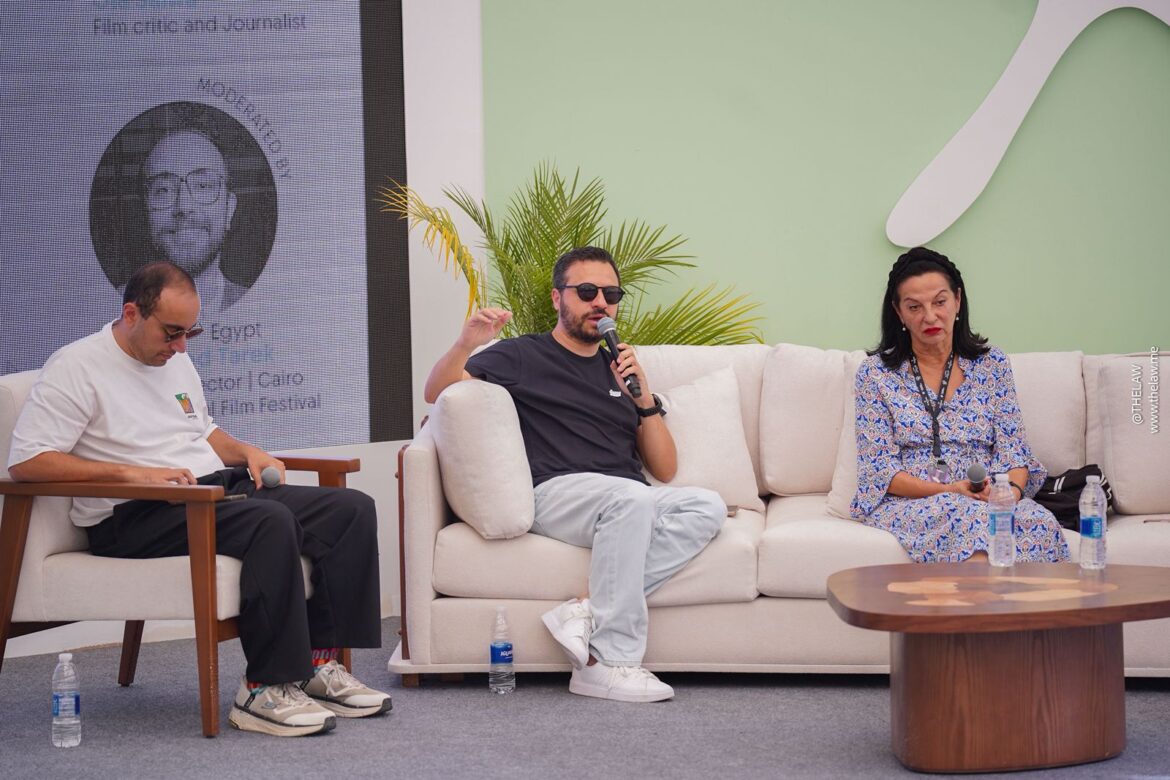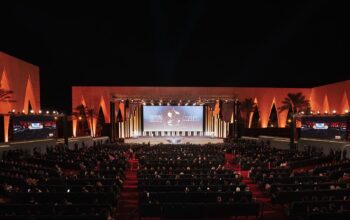As part of the activities of the eighth edition of the El Gouna Film Festival, a session titled “Film Criticism: FIPRESCI 100 Years” was held yesterday. The session was moderated by critic Mohamed Tarek, artistic director of the Cairo International Film Festival, with the participation of Ahmed Shawky, president of the International Federation of Film Critics, critics Ulla Salva, and critic Dubravka Laktić. A group of stars and filmmakers were also in attendance, including Ahmed Magdy, Youssef Osman, and Serbian critic Dubravka Laktić.
The discussion began by emphasizing that film criticism is not merely analyzing films, but rather a space for understanding the image and appreciating art. Ahmed Shawky pointed out that managing a federation that includes more than fifty countries is a major challenge, saying, “When we took over the federation, we had only 15 jury committees. Today, we have 80, and we are aiming to reach 100, because we believe that criticism is part of the evolution of cinema.”
Dubravka Lakic emphasized that criticism is a difficult profession because it “doesn’t satisfy everyone,” adding, “Filmmakers don’t always like us, but we write honestly because we love cinema as much as they do.”
Ola Salva spoke about her experience as a female critic, explaining that entering the field wasn’t easy: “When I started, it was difficult for a young woman to be accepted into this field, but my love of cinema kept me going. We are not enemies of directors; we are part of the system that develops art.”
The discussion also touched on how to write film reviews, with Ahmed Shawky emphasizing that a true critic must possess a literary style and an independent mindset, saying, “True talent isn’t just in language, but in choosing the idea the critic discusses within the film. You have to know why you liked the film or why you didn’t, and translate this into an objective and honest analysis, far removed from superficial impressions.” Dubravka added that critics must be “good writers before being analysts,” saying, “You must write honestly and intelligently, and keep the reader interested until the last line, because criticism is not a description, but a dialogue between you and the reader about art.”
Shawky emphasized the importance of independent criticism, saying, “A true critic doesn’t write to please anyone, but rather to understand and analyze the work in depth. The relationship between filmmakers and critics must be based on mutual respect.”
At the end of the session, the speakers agreed that the future of film criticism depends on maintaining honesty and intellectual freedom in an age of accelerating digital platforms. They emphasized that the critic will always remain a bridge between the creator and the audience, and between the image and its hidden meaning.









